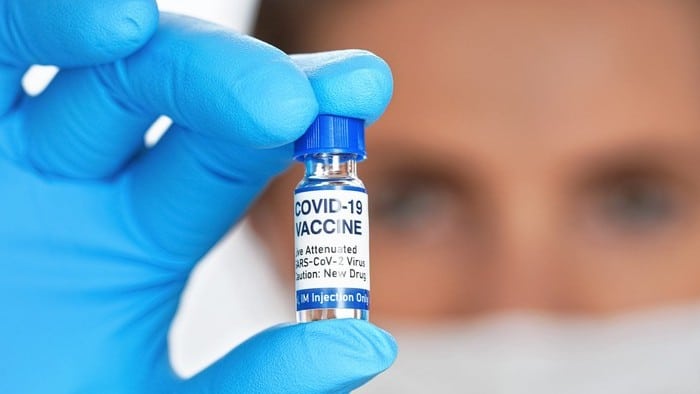This article was originally published on Fool.com. All figures quoted in US dollars unless otherwise stated.
COVID-19 cases and deaths continue to rise in the United States. Some states are being hit especially hard. While researchers and physicians have learned a lot about the disease caused by novel coronavirus SARS-CoV-2, there seems to be no end in sight to the ongoing pandemic.
The good news, though, is that a frantic – and massive – effort is under way to develop vaccines that could potentially prevent the spread of COVID-19. Here's everything you need to know about the coronavirus vaccine race.
How many vaccine candidates are being developed?
As of July 31, 2020, there are 165 novel coronavirus vaccine candidates in development, according to the World Health Organization. However, 139 of these candidates are in preclinical testing. Many of these candidates might not advance into clinical testing in humans. The good news is that 26 COVID-19 vaccine candidates are already in clinical testing.
Which vaccine candidates are in the lead?
Clinical testing of vaccines includes three phases. Candidates must successfully complete phase 1 testing to go on to phase 2 and then must successfully complete phase 2 testing to advance into phase 3.
There are currently five COVID-19 vaccine candidates in phase 3 testing, also commonly referred to as late-stage testing. Chinese drugmaker Sinopharm claims two of these candidates. Another Chinese company, Sinovac Biotech, also has a COVID-19 vaccine candidate in phase 3 testing. The other two late-stage candidates are AZD1222, which is being developed by AstraZeneca (NYSE: AZN) and the University of Oxford, and Moderna's (NASDAQ: MRNA) mRNA-1273.
In addition, Pfizer (NYSE: PFE) and BioNTech (NASDAQ: BNTX) recently began a phase 2/3 clinical study evaluating COVID-19 vaccine candidate BNT162b2.
How do the leading vaccine candidates differ?
The vaccine candidates from Sinopharm and Sinovac use inactivated (dead) coronavirus cells that are introduced to the body. AstraZeneca and the University of Oxford are using what's called a non-replicating viral vector. This approach uses a weakened version of an adenovirus (which causes the common cold) to deliver genetic material from the SARS-CoV-2 virus.
Moderna and the Pfizer/BioNTech partnership use a messenger RNA (mRNA) approach. While DNA contains all of the instructions for building proteins, mRNA carries those instructions to ribosomes, which serve as the body's protein-making factories. The COVID-19 vaccine candidates developed by Moderna and Pfizer/BioNTech modify mRNA to cause ribosomes to produce spike proteins that are identical to those found in SARS-CoV-2.
The ultimate goal of all of these vaccines is to cause the body to develop antigens that remain in the blood and help fight off future viral attacks.
Which vaccines not among the leaders could be winners?
Two COVID-19 vaccine candidates currently in clinical testing have received significant funding and appear to be especially promising.
Novavax (NASDAQ: NVAX) received $1.6 billion from the U.S. government for developing COVID-19 vaccine candidate NVX-CoV2373. Johnson & Johnson (NYSE: JNJ) also was awarded $456 million in funding for its coronavirus vaccine candidate.
There's also an experimental COVID-19 vaccine that hasn't advanced into clinical testing that scored a major U.S. government funding deal recently. Sanofi (NASDAQ: SNY) and GlaxoSmithKline (NYSE: GSK) were awarded $2.1 billion for up to 100 million doses of a preclinical coronavirus vaccine candidate.
How soon might a vaccine be available?
In the past, it's taken years for vaccines to advance through clinical testing and win regulatory approvals. However, the normal timeline is being accelerated greatly as a result of the COVID-19 pandemic.
Opinions vary as to how soon a coronavirus vaccine will be available. Some CEOs of companies making vaccine candidates think their COVID-19 vaccine candidates could be ready by the end of this year. Others believe that early 2021 is more likely. However, there are also some less optimistic predictions that it could take much longer before a safe and effective COVID-19 vaccine is ready.
What are the chances that no vaccine will be safe and effective?
You'll probably be happy to learn that the chances that none of the COVID-19 vaccine candidates in development will be safe and effective are quite low. Nearly three out of four vaccines that entered phase 3 testing between 2006 and 2015 went on to win FDA approval, according to biopharmaceutical industry organization BIO.
Since there are currently six coronavirus vaccine candidates in late-stage testing or close to it, the probability that none of them will win approval based on BIO's historical analysis is only one in 3,470. If we included all of the other candidates in phase 1 and phase 2 clinical testing, the odds are heavily in favor of at least one of them achieving success.
Which coronavirus vaccine stocks are good picks?
The Motley Fool's mission is to make the world smarter, happier, and richer. Therefore, we can't leave out addressing the investing angle of the coronavirus vaccine race.
If your investing style is more conservative, big pharma stocks like AstraZeneca and Pfizer could be attractive. Both companies are leaders in the scramble to develop a COVID-19 vaccine. Both have landed major supply contracts already. And both AstraZeneca and Pfizer have other growth drivers in addition to their COVID-19 programs.
On the other hand, if you're an aggressive investor, Moderna and Novavax might be more to your liking. Both biotech stocks have soared this year. But if their COVID-19 vaccine candidates are successful in clinical testing, Moderna and Novavax could go a lot higher.
This article was originally published on Fool.com. All figures quoted in US dollars unless otherwise stated.








